Sallie Rediske and Tahlia Ruschioni presented the new medical education series at the Reflections of ME/CFS, FM, and Long COVID awareness event on May 9th. We invited Sallie to write this guest post to accompany her presentation. Click here to view the video...
ME/CFS
Travel and Crash Considerations
Chapter 14: Traveling, while wonderful, can put you at risk for a crash. The increased energy expenditure physically, cognitively, and emotionally can use up your energy reserves more quickly than you would think. Here are some tips that may help you have less chance of crashing and use your energy more slowly.
Making the Decision to Seek Emergency Care
Chapter 13: First and foremost, KEEP IT SIMPLE! It is not your job to diagnose what is wrong. If you or your caregiver think you should go to urgent care or the ER, then you should probably go.
Thoughts of Suicide
Chapter 12: When the body first becomes sick, it can be mentally, emotionally, and physically draining to the affected individual as the body struggles to regulate itself. This process can be incredibly overwhelming as the patient tries to find the vocabulary to describe what is happening to them.
Living with a Chronic Illness and Avoiding a Crash
Chapter 11: While living with ME/CFS, it is vital to learn the art of preventing and minimizing PEM and a subsequent crash. While not in a crash state, familiarize yourself with resources that can assist you in conserving energy and apply these following concepts to your everyday life.
Nurture Yourself
Chapter 10: When living with ME/CFS, it may be tempting to let your mind fixate on what caused the illness or a crash. You may even feel yourself slipping into a state of self-blame. Simply put, this is not helpful to your crash recovery and is not supportive when living with the disease.
Activities of Daily Living
Chapter 9: Activities of daily living, known as ADLs, are tasks that involve self-care. Common ADLs include personal hygiene, bathing, toileting, dressing, eating, sleeping, and moving around in our environments. These tasks are often carried out without awareness of the energy demand that can be placed on our bodies while performing the task.
Teaching Scientists About Brain Fog
Bateman Horne Center is honored to have a guest message by Janet Dafoe. She is a caregiver for her very severe ME/CFS son, advocate and fundraiser for the End ME/CFS Project at Open Medicine Foundation and CFSRC at Stanford. Follow her on Twitter at @JanetDafoe. Ron...
Nutrition and Hydration
Chapter 8: The following are examples of quick, easy, nutrient-rich foods and hydration options that can be integrated into everyday living with ME/CFS, orthostatic intolerance, and during a crash. In living with ME/CFS you may experience fluctuating motility, stomach and body sensitivities, nausea, etc. Be careful when introducing any new items into your system. Start slow, work with your medical care team while being mindful of any known intolerances or mast cell triggering substances.
Medication
Chapter 7: Brain fog can make it easy to forget your medication routine when you are experiencing PEM or moving into a crash. Delayed or missed medications can exacerbate a crash and/or slow your crash recovery.
Turn Down the Volume & Allow Recovery
Chapter 6: There are many environmental triggers and stimuli that can precipitate and/or prolong crash recovery. Try to minimize all energy demands, sensory and physical stimuli, and allow your body the space to restore and recharge.
Communication – Meeting Your Critical Needs
Chapter 5: Communication – Meeting Your Critical Needs. During a crash, it can be difficult to communicate with others. This section references downloadable and printable communication cards to help you communicate your needs. Consider keeping these in your bedside Crash Care Kit or on your electronic device to point/show your caregiver, loved one, or support services.
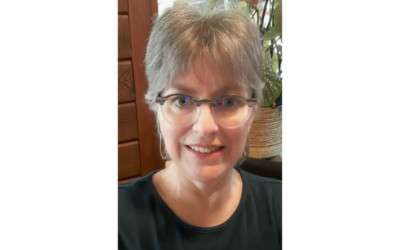
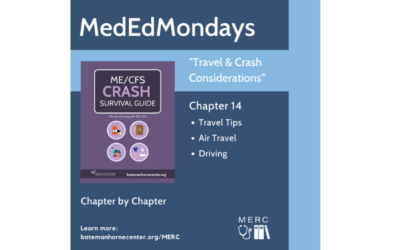
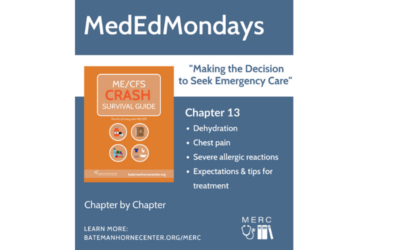
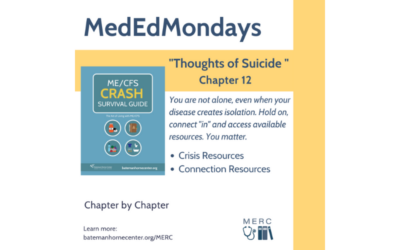
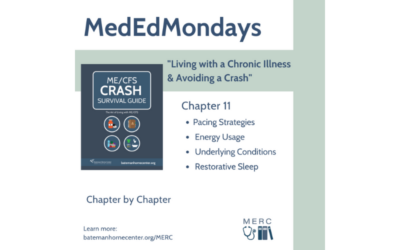
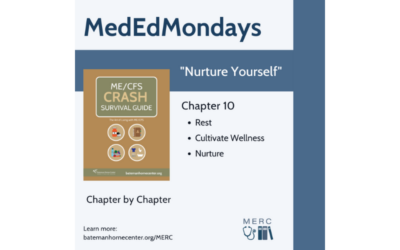
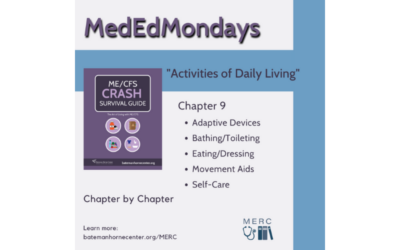
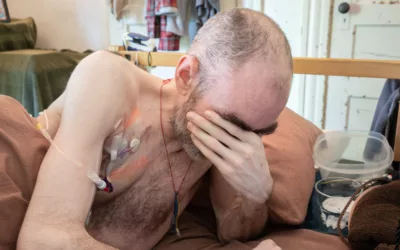
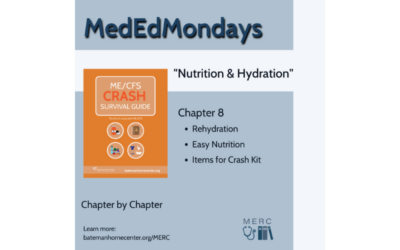
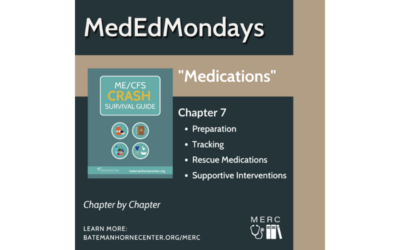
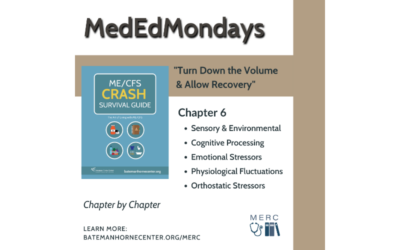
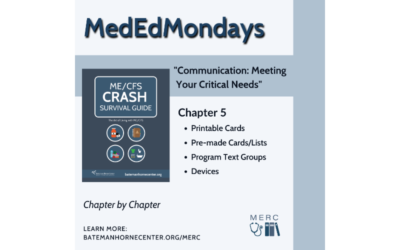
 Lucinda Bateman, MD, is a renowned clinician, researcher, and educator. Her Johns Hopkins University Medical School training instilled an approach to care that she has employed throughout her career - the patient comes first and the unknown or unexplained does not equate to a lack of proper and compassionate care. Since starting her own practice in 2000, she has served on six boards or committees, been the principal investigator for 45 studies, authored/coauthored 40 journal articles, served as adjunct instructor and adjunct assistant professor in the University of Utah Departments of Preventative Medicine, Internal Medicine, and Anesthesiology, and lectured around the world.
Lucinda Bateman, MD, is a renowned clinician, researcher, and educator. Her Johns Hopkins University Medical School training instilled an approach to care that she has employed throughout her career - the patient comes first and the unknown or unexplained does not equate to a lack of proper and compassionate care. Since starting her own practice in 2000, she has served on six boards or committees, been the principal investigator for 45 studies, authored/coauthored 40 journal articles, served as adjunct instructor and adjunct assistant professor in the University of Utah Departments of Preventative Medicine, Internal Medicine, and Anesthesiology, and lectured around the world.